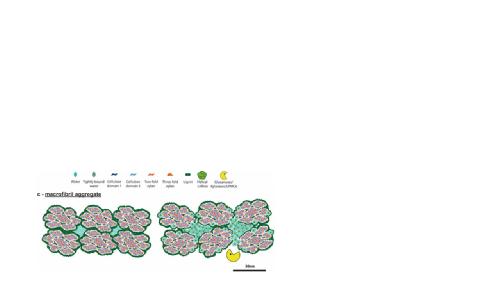Physics Department News
Solid state NMR shows how a wood modification boosts biomass conversion
Professor Ray Dupree, Dr Rosalie Cresswell and Dr Dinu Iuga are co-authors of a recently published paper in Nature Plants titled ‘Ectopic callose deposition into woody biomass modulates the nano-architecture of macrofibrils’. Fossil fuels are the major source of energy, chemicals and materials but are responsible for a substantial portion of greenhouse gas emissions. To reach carbon neutrality, much of what’s made from fossil fuels today will have to be made from biomass tomorrow, currently chemically and energetically very demanding. Ray says “Our collaborators at the Sainsbury Lab. and Cambridge University took callose, a polymer that is naturally occurring in some cell walls of plants, and engineered it into the secondary cell walls of poplar wood. This callose enriched poplar is much more easily converted into simple sugars and bioethanol than non-engineered wood. Why? Solid state NMR at Warwick surprisingly revealed that callose did not interact with other polymers but acted as a cell wall spacer attracting water and making it much easier for enzymes to access/breakdown the wood.”
Read the publication. Nature Plants 9, 1530–1546 (2023) https://doi.org/10.1038/s41477-023-01459-0

Model of poplar macrofibril assembly without (left) and with callose deposition (right). Callose self-aggregates in between macrofibrils, which explains the observed increase in secondary cell wall porosity. The range of pore size affected is 4–30 nm, which is in the size range of hydrolytic enzymes.
